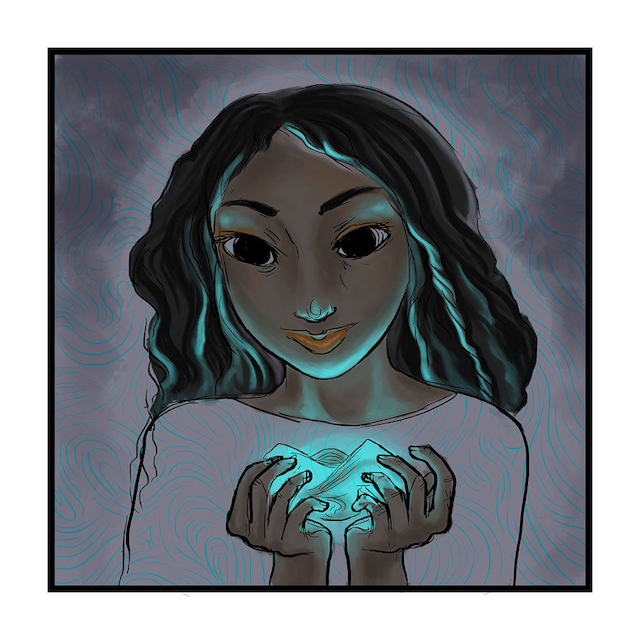I was 18, in my first semester of college.
I had just completed a class called “The Sociology of Death,” in which I began to come to terms with the reality that I would one day lose everything that I loved. The idea was devastating. My mother’s face—real, honest, and pure—was the first to come to mind.
I grabbed a piece of paper and wrote her a letter, sharing everything that I had never had the courage to tell her:
Mom,
I realize that I haven’t always shared my experiences with you, like track meets in high school. I wanted you to know that this wasn’t your fault. It was my own insecurity, but I have since grown and learned. I wanted to send this to you and tell you that I love you more than anything in the world. Even though I don’t always tell you, I take it for granted that you know it. When I do well in life, I feel that much better because I know that you take as much pride in me as I do myself. You have always been there for me and I don’t know what I would have done without you. When I do well in school, track, and life, I feel as if I’m doing it as much for you as for me, and that makes me happy.
Love,
Andy
My mom received the letter and left a voicemail to thank me. A few hours later, she was hit and killed by a drunk driver. My life changed forever. I had suicidal thoughts for the next few years, finally leaving the United States at age 20, never to return. I embarked on a journey to find myself in the world after the loss of the thing I loved most.
Twenty-seven years and 50 countries later, I have discovered one of life’s great secrets: no matter where I go, my pain is always with me. There is no escape. Eventually, I had to face my pain—and ultimately, learn to embrace it.
I am often confused when I hear someone say, “I don’t feel like my life is meaningful,” which is usually followed by a discussion about what they do for a living and what they think needs to change. My thought is, if we want a meaningful life, we must simply consider everyone whom we love in our lives and the fact that they may be gone tomorrow. We must sit with that fear and vulnerability. When we fully embrace this truth, we might find that it is no longer crippling, but motivating instead. We can leverage that vulnerability into a meaningful life by following what it prompts us to do. For example, we can look at someone close to us, realize he or she will not always be there, and say simply, “I love you.”
In vulnerability, we find connection—and in connection, we find meaning and joy.
There’s nothing more meaningful than sharing an open-hearted moment with another person, shedding tears together and truly seeing one another. But strangely, we instinctively, habitually, and expertly move away from these moments. We think we’re avoiding pain, but in the process of avoiding pain, we’re also suppressing joy.
When we learn to open up to vulnerability and accept reality as it is, meaningful moments no longer come along only on occasion. Rather, every moment of our lives becomes imbued with meaning.
Our purpose in life is no longer defined by our job, our income, our status, our level of comfort and security, or anything outside of ourselves. Rather, it is defined by our relationships with ourselves, others, and our world, and our acceptance of reality as it is.
Life is no longer a problem to be solved, but rather a mystery to experience openly and fully. We no longer strive to get somewhere, for we realize that we are always here, right now. There’s nowhere else we can go and nothing else we can do that will be any better or meaningful than what we’re experiencing in this moment.
True freedom can only be found by accepting reality as it is—even and especially when it’s painful. The more we run from pain, the more we’re a slave to it. Pain is not a malicious enemy to be conquered, but rather a loving friend to surrender to. Pain teaches us to open our hearts to love and compassion.
I now invite you is to write your own “last letter.” Think of the person whom you love the most. Now, imagine you have one final opportunity to say what he or she means to you. It’s your letter, but you may find the following questions helpful as you ponder what you want to say:
>> Why are you grateful for this person in your life?
>> What particular things has this person done for you that you find meaningful or special?
>> If this person were to die, what would you miss the most about him or her?
>> What are your favorite memories with this person?
>> What have you always wanted to say to this person but have felt incapable of saying, or perhaps just couldn’t find the words or “right time”?
>> If you didn’t have a chance to say goodbye to this person, what would you regret not being able to say to him or her?
When you are done, I invite you to post a copy of your letter on The Last Letter. (You can also read letters there written by other people.) The purpose of the website is to connect all of humanity in love and caring. From our greatest shared fear—the fear of death—we can inspire each other to live more meaningful, joyful lives.
~
~
Author: Andy Chaleff
Image: Jem Yoshioka/Flickr
Editor: Callie Rushton
Copy Editor: Nicole Cameron







Read 0 comments and reply